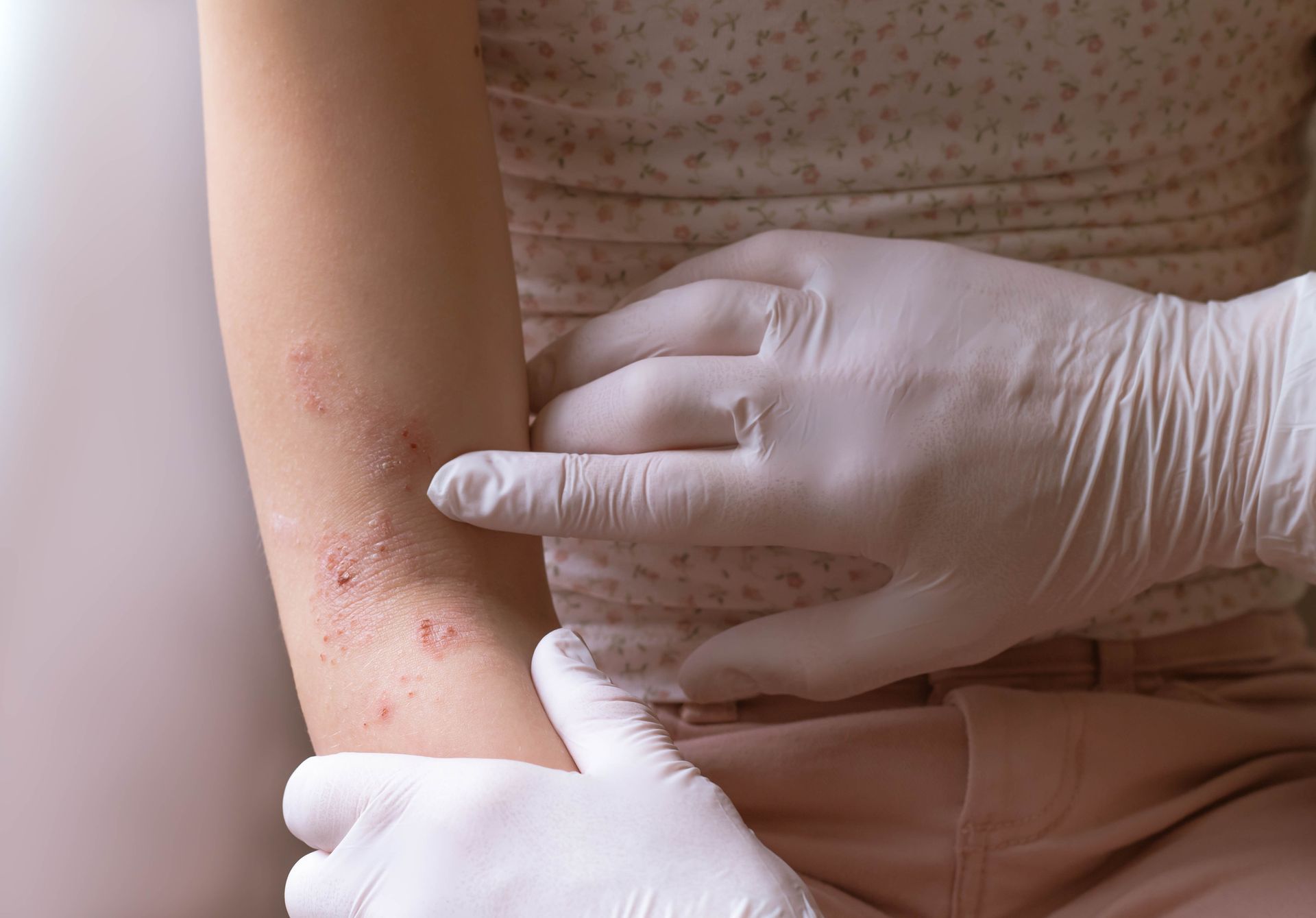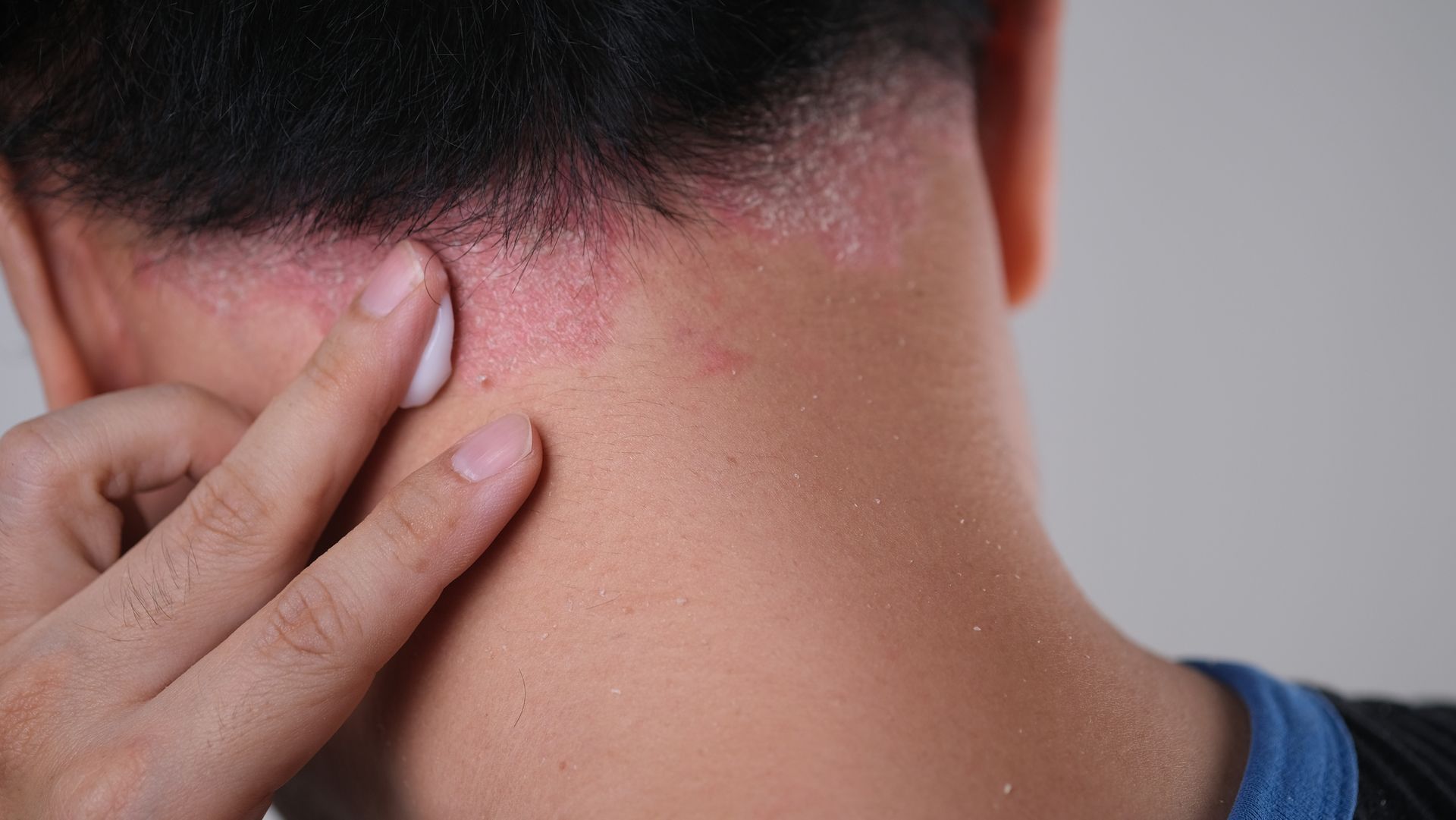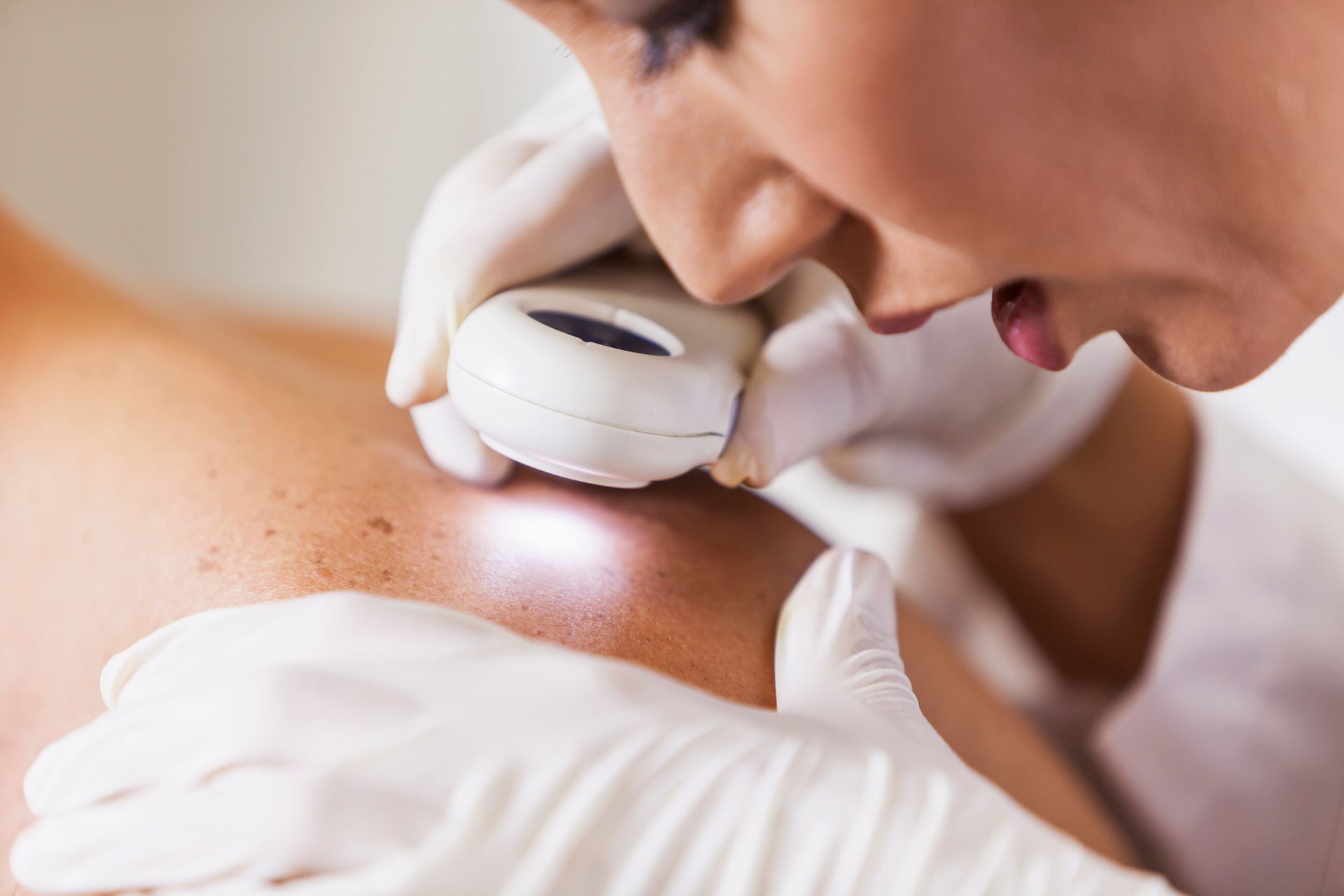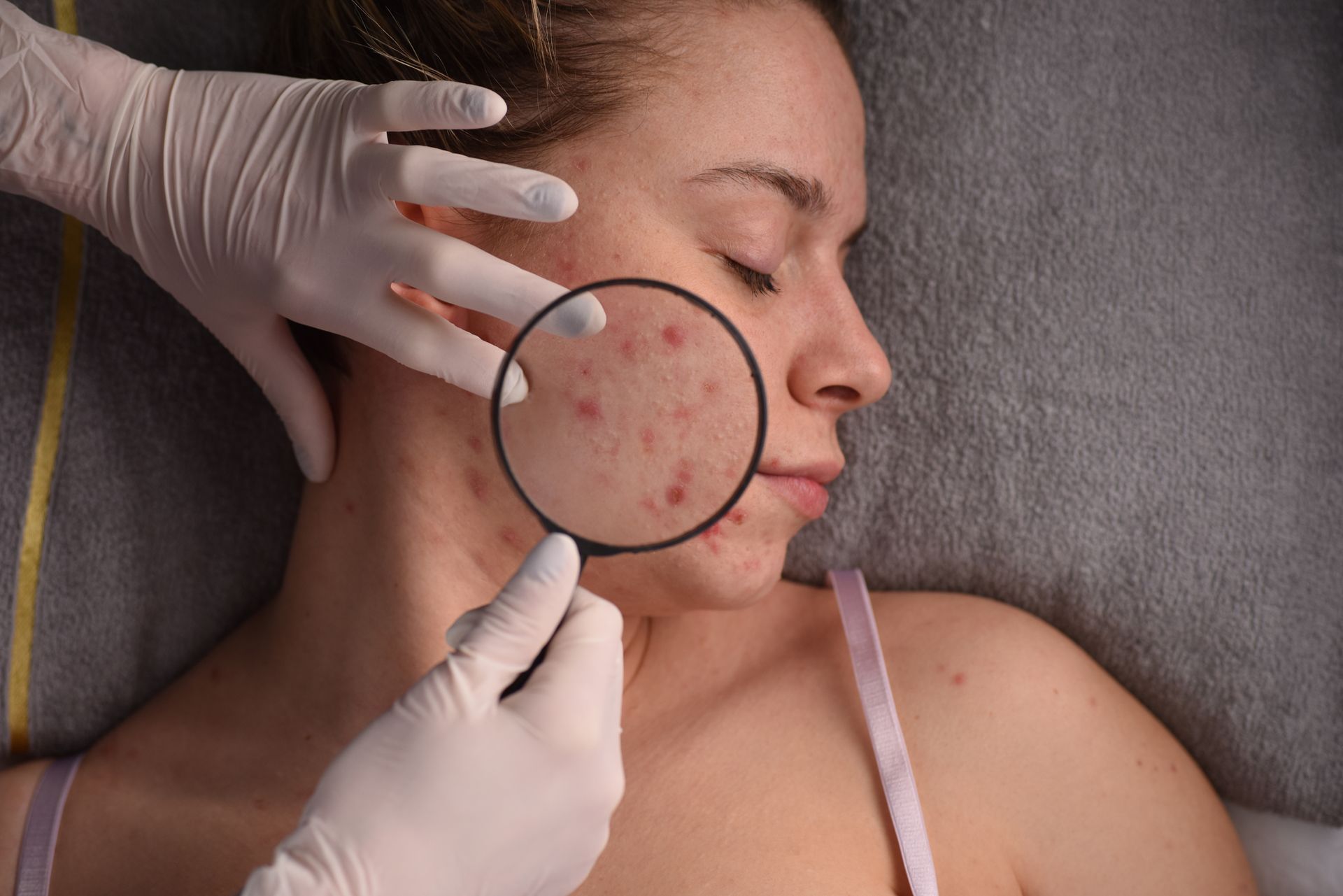Dermatology Services in New Bern, NC
Welcome to East Carolina Dermatology and Skin Surgery PLLC, located in the heart of New Bern, NC. Our clinic specializes in medical dermatology, and offers cosmetic procedures to help you achieve healthy and beautiful skin. Call us at 252-633-4200 to schedule your appointment and take the first step towards healthier skin.
You Too Can Achieve Healthy-Looking Skin
Whether you are dealing with a medical condition or want to improve the appearance of your skin, our team of experts can help you achieve your skin health goals.
We offer a range of dermatology treatments, from medical treatments for conditions like eczema and psoriasis to cosmetic procedures like chemical peels, Botox and skin tightening with Sofwave. Our experienced dermatologist will work with you to develop a personalized treatment plan that meets your unique needs and helps you achieve the healthy skin you deserve
Early Diagnosis is Key
Early intervention is critical to preventing and managing skin conditions effectively. Don't wait until a skin issue becomes severe or uncomfortable – seek timely dermatological care to address concerns before they escalate. Our skilled dermatologist emphasizes proactive skincare and preventive measures to keep your skin healthy and vibrant for years to come.
Our Dermatology Treatments
We offer a wide range of dermatology treatments to address various skin conditions. Our experienced dermatologists specialize in a range of treatments, including:
Diseases of Skin, Hair, and Nails:
Comprehensive care for a wide range of dermatological conditions affecting the skin, hair, and nails, including acne, rosacea, alopecia, and nail disorders.
Even if your skin condition isn’t on this list, or you have a combination of complaints, our years of experience allow us to give you the answers you need and an action plan.
Our Office
We know that skin conditions can be embarrassing, uncomfortable, and stressful. When you come to our office, our dermatology specialists will give you the personal attention you deserve. We'll thoroughly explain your options and answer any of your questions before you decide which option is best for you and your health needs.
Our friendly staff and comfortable office will help you feel relaxed and cared for during your visit. We are dedicated to helping our patients enjoy the skin they are in.
Our Reviews
If you are experiencing any skin-related issues, don’t wait to seek the advice of a dermatologist. Contact us today to schedule an appointment and take the first step toward achieving healthy and beautiful skin.






